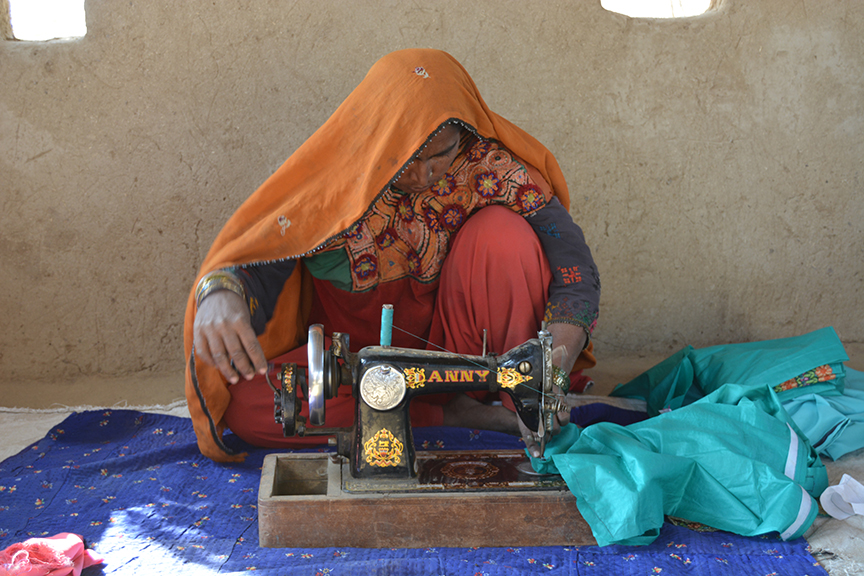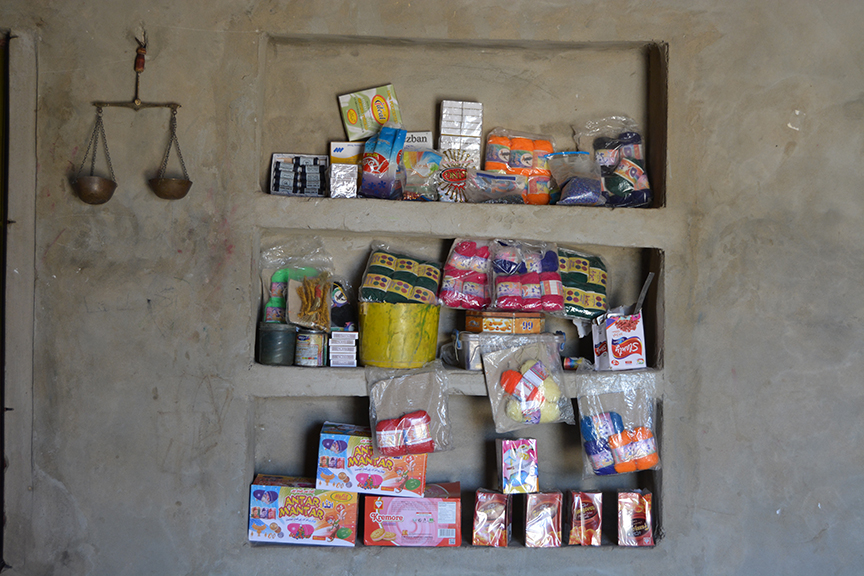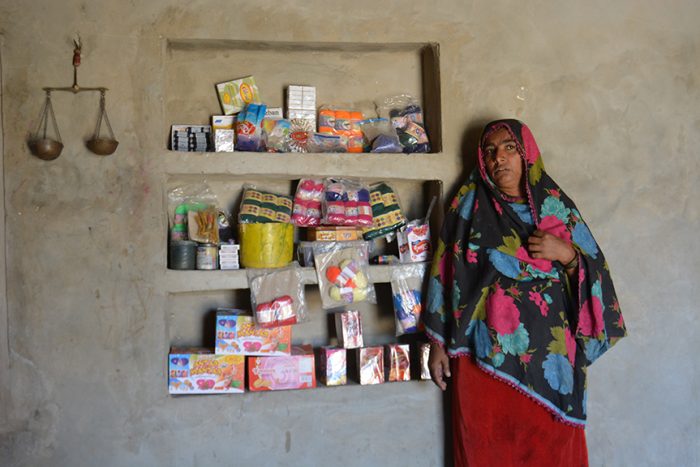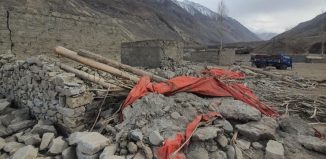Sowing Hope: Zulikhan’s Journey towards Resilience and Self-Reliance
In a remote village in Umerkot District, Sindh, 45-year-old Zulikhan fights every day to provide for her eight children— aged between 17 and 5 years. With agriculture as their only livelihood, her family depends on a small four-acre plot of land. But as harsh climatic conditions worsen and resources remain scarce, the struggle to survive grows more daunting with each passing season.
The agricultural land that Zulikhan and her family cultivate generates an annual income of PKR 120,000 (approx. USD 428) from seasonal crops such as millet, cluster beans, and moth beans—planted once each year. However, this modest income falls far short of covering the family’s monthly expenses, which amount to PKR 25,000 (approx. USD 90). To bridge the gap, Zulikhan’s husband, Sohbdar, takes on additional work selling wood, earning between PKR 12,000 to 15,000 (approx. USD 42 to 53) per month. Yet, despite his extra efforts, the family continues to struggle to meet even their most basic needs. Their monthly expenses add up to a minimum of 20,000 (approx. USD 72) for food and PKR 5,000 (approx. USD 18) for necessities such as water, healthcare, and hygiene maintenance. And the expenses are usually more than this.

To support vulnerable communities affected by severe climate change impact and subsequent poverty and food insecurity, Community World Service Asia (CWSA), with the support of Diakonie Katastrophenhilfe (DKH), launched an initiative titled, “Strengthening the Livelihoods and Resilience of Vulnerable Agricultural Communities in Rural Sindh, Pakistan” in June 2024. Lasting up until August 2025, the interventions under this project aim to enhance the resilience of these affected communities by improving agricultural and livelihood opportunities in the area.
A total of 460 community members from 15 villages across Union Councils Sekhro and Faqeer Abdullah were carefully selected for assistance based on strict criteria, prioritising large, agriculture-dependent families living below the poverty line. Among them was Zulikhan’s family, chosen to receive a goat to support long-term livelihood sustainability, along with PKR 17,000 (approx. USD 61) in cash assistance for food security, provided in October and November. To ease the burden of water collection, the family was also given water rollers, while kitchen gardening kits and high-quality seeds were provided to promote home-based food production.
As part of the initiative, Zulikhan and her family participated in comprehensive training sessions on agriculture, livestock management, and disaster risk reduction (DRR) to strengthen their resilience and improve productivity. Additionally, livestock vaccinations and deworming services were provided to ensure the health and productivity of their animals.

The kitchen gardening kit included essential tools such as a hand sprinkler, hand hoe, garden trowel, nets, and 50 grams each of seven different vegetable seeds, equipping Zulikhan and other families with the resources to grow fresh, nutritious food at home, enhancing both food security and self-sufficiency.
The cash assistance provided by CWSA has been a lifeline for Zulikhan and her family, helping ease their financial struggles. With the first installment, she prioritised purchasing essential groceries like oil, tea leaves, and sugar, ensuring her family had enough food to sustain them. Upon receiving the second installment, she saw an opportunity to create a more stable source of income by starting a small business selling goods, allowing her to cover her household’s daily expenses and work toward greater financial independence.
From the second instalment of PKR 17,000 (approx. USD 61), Zulikhan decided to invest in purchasing confectionery items at wholesale rates. Given that the village had only one shop, which often lacked essential goods, she recognised an unmet demand within the community. Seeing this as an opportunity, she made a strategic decision to start a small-scale business from her home, selling these items to her neighbours. Setting up a small shop just within her house, she was able to generate additional income while providing villagers with easier access to everyday necessities. This initiative turned out to be a strategic and rewarding choice, enabling her to set aside small savings while actively contributing to her family’s financial stability.
Meanwhile, Zulikhan continues to run her small home-based shop, earning between PKR 200 to 300 (approx. USD 0.70 to 1.70) per day. On average, she generates an additional PKR 8,000 (approx. USD 28) per month from this business. Despite her efforts and the support from the project, the total household income barely covers their essential expenses, but at least they are not in debt now.
However, with the support of Community World Service Asia (CWSA) and Diakonie Katastrophenhilfe (DKH), Zulikhan’s family has seen a significant improvement in their monthly income and livelihood. The combination of cash assistance, agricultural training, and resource distribution has provided them with the means to strengthen their food security and economic stability.
Driven by her unwavering determination to secure a better future for her family, Zulikhan is committed to growing her small business, ensuring they no longer struggle with daily household expenses. But beyond financial relief, this initiative has fostered a sense of empowerment, resilience, and independence within her household. It has given them not just the means to survive, but the confidence to build a more self-reliant and secure future—one where they can thrive with dignity and hope.







